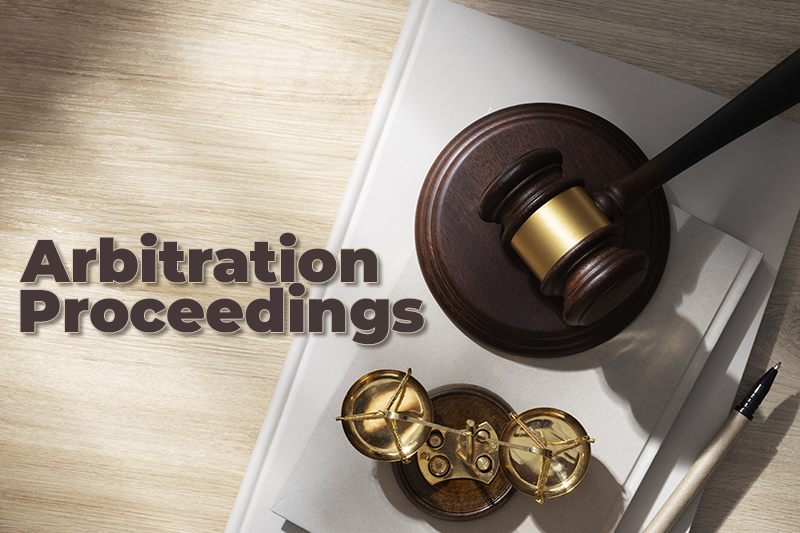Accuracy, efficiency, and accurate documentation are critical for legal processes. Maintaining clear and accurate documents is crucial when it comes to arbitration procedures, where parties look for an out-of-court settlement without judicial intervention. This is where professional transcription services come into play, offering a key backbone that protects the integrity of courtroom processes. Transcribing arbitration sessions and associated documentation accurately is crucial to preserve evidence, promote efficient communication, and ultimately improve the fairness and success of the arbitration process.
What is Arbitration?
Arbitration is a legally binding dispute settlement method based on contracts. When parties enter into an arbitration agreement, they agree to have a fair arbitrator assess their rights and duties.
A party’s ability to request that a dispute be submitted to arbitration depends on whether they and the other parties to the dispute have reached an agreement (the “arbitration agreement”) to that effect. Commercial contracts frequently have clauses stating how disagreements pertaining to the contract are to be settled. The arbitration agreement will typically be included in the document that details the conditions of the business transaction if the parties opt for arbitration. After a disagreement has developed, parties may potentially agree to arbitrate it.
Arbitration is not the same as mediation or conciliation, despite the fact that it is occasionally referred to as such. A mediator or conciliator can only suggest solutions; it is up to the parties to accept or reject such suggestions. However, the arbitration tribunal, has the authority to render judgments that are binding on the parties.
Different Stages of Arbitration Proceedings
- The Case Initiation Stage:
- The American Arbitration Association (AAA) notifies the parties that the case has been filed through letter or email. The arbitration procedure will also be covered in this message.
- Dates will be specified at this time for all parties to submit any further information and for the respondent to submit an answer to the claimant’s Demand for Arbitration.
- Arbitrator Invitation Stage:
- The AAA appoints a single arbitrator or a panel of arbitrators to hear your dispute, in accordance with the procedure described in the rules that govern your arbitration.
- The arbitrator evaluates the case facts as part of this procedure, checks for conflicts, and returns a signed oath document along with any pertinent disclosures, if necessary.
- Arbitrator Appointment Stage:
- The parties are informed of the arbitrator’s appointment and given the chance to object to that arbitrator hearing the case.
- There is a deadline for any objections, and if any are made, the AAA will hold a hearing to determine whether the arbitrator should remain on the case or be dismissed.
- The matter moves back to the arbitrator invitation phase, as previously mentioned, if the AAA decides to dismiss the arbitrator.
- The case moves on to the next phase if the arbitrator is retained.
- Preliminary Hearing and Information Exchange Stage:
- The preliminary hearing conference call with the parties and the arbitrator will be scheduled and held when the arbitrator has been appointed and confirmed.
- Preliminary concerns are discussed, the parties’ information exchange is scheduled, and a hearing date is determined during this call.
- The arbitrator will confirm all significant dates and particulars mentioned on the conference in a written document known as a “scheduling order” that is issued after the conversation has been held.
- Hearing Stage:
- The parties may conduct this stage in person, by telephone, or by submitting written materials in which they make their case to the arbitrator.
- The procedure is governed by the arbitration agreement of the parties and the applicable rules.
- On the arbitrator’s instruction, parties will occasionally also submit written arguments following the hearing.
- Award Stage:
- The hearings are closed when they are finished and the arbitrator decides no other evidence will be presented. A date for the issuance of the award is then scheduled.
- The arbitrator makes a written decision that determines the case’s conclusion and sends it to the parties. The case now closed, and AAA closes its file.
The importance of professional transcription services in the arbitration process cannot be emphasized. These services are essential for providing thorough and accurate documentation of arbitration procedures, which improves transparency, effectiveness, and justice. Transcription services give parties and arbitrators the ability to study and analyze the evidence with accuracy by accurately transcribing hearings, interviews, and related documents. This facilitates the creation of compelling arguments and well-informed rulings. Furthermore, the availability of full and verbatim transcripts makes it easier to prepare documents, enables for thorough post-arbitration analysis, and acts as a trustworthy resource for any potential appeals or subsequent legal actions.
Professional transcription services play a critical role in maintaining the accuracy and success of the arbitration process because of their proficiency in listening to, recording, and transcribing spoken words.
Contact us Today to discover how our professional transcription services can enhance your arbitration proceedings.




